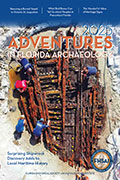Edward H. Greene was born in Winter Park, Florida, in 1948. He grew up in several communities across Orlando in the 1950s and 1960s, most notably in Eatonville. He recalled his adolescent experience in Eatonville, particularly attending Hungerford High School. Edward’s family intersects deeply with Eatonville’s history, as his grandmother’s uncle was Joe Clark, the formerly enslaved African American who founded Eatonville in 1887. Edward’s grandmother, Catherine “Willie” Clark Alexander, also remains significant to Eatonville’s history, as she served as the town’s first postmaster for twenty-four years from 1955 to 1979. Edward shared his grandmother’s story, specifically the day she was abducted from the post office and brutally murdered, which remains one of the most heinous crimes in Eatonville’s history. Additionally, Edward recounted his collegiate experience at Bethune-Cookman, which mandatory military service temporarily interrupted. Lastly, Edward discussed how Orlando has changed since his adolescence, specifically within a racial context.
N.B. We conducted this interview at the end of the Zora Neale Hurston Festival of the Arts and Humanities, when the lawn maintenance crew cleaned the area and event staff packed up equipment, disrupting the audio. Additionally, Edward’s mic did not function until approximately 3:40, thus any audio from him before remains faint, but not completely inaudible.







